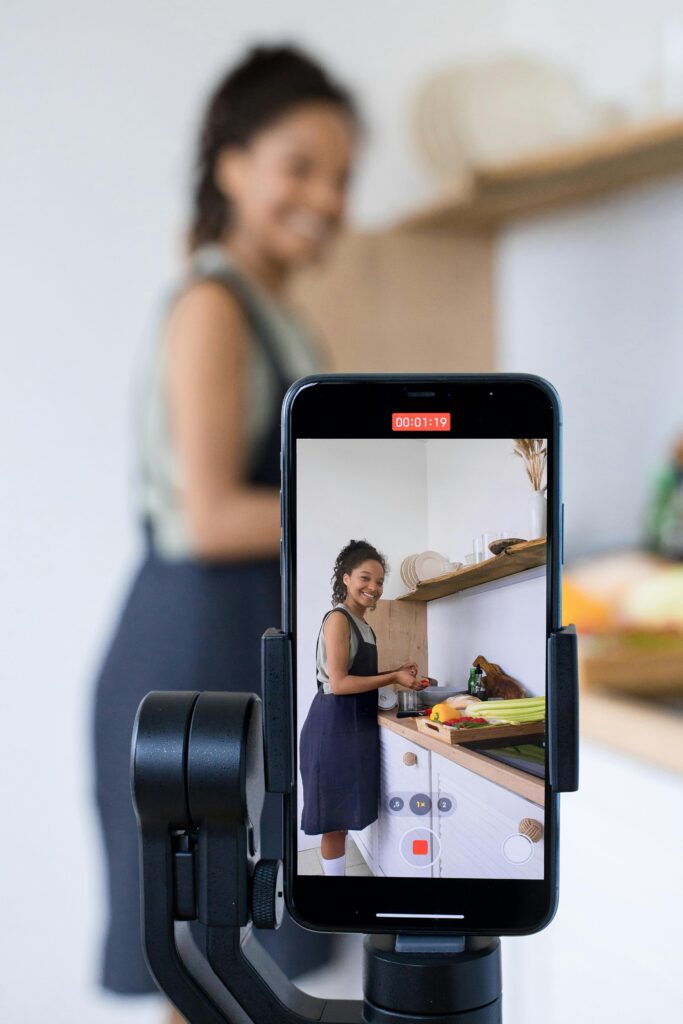
Micro influencers excel at creating authentic content that resonates with their followers, which is a tremendous asset for small brands. These influencers often share personal stories, product reviews, and lifestyle content that feels relatable and trustworthy. Small brands benefit by aligning with influencers whose values and aesthetics match their own, creating a natural and persuasive promotional message. For instance, a small eco-friendly skincare company partnering with a micro influencer passionate about sustainable living can create compelling, credible content that drives sales and brand awareness.
Glossier, a beauty brand that started small, has leveraged micro influencers to fuel its explosive growth. Instead of relying solely on celebrity endorsements, Glossier tapped everyday users and micro influencers who genuinely loved their products. These influencers shared honest reviews and tutorials, which contributed to a groundswell of organic buzz and community building. This approach not only increased Glossier’s reach but also cultivated a loyal customer base, demonstrating how micro influencers can be pivotal in brand-building for small businesses.
For small brands, working with micro influencers is a cost-effective way to gain credibility and extend reach without the hefty price tags associated with larger influencers or traditional advertising. Micro influencers’ audiences trust their opinions, making their endorsements more impactful. Additionally, because micro influencers often engage more deeply with their followers, small brands can tap into highly targeted niches. This focused exposure allows brands to attract customers who are more likely to convert and become repeat buyers.
Collaborations with small brands also provide micro influencers with opportunities to grow their own platforms and enhance their personal brands. By partnering with emerging companies, influencers gain exclusive content, unique products to showcase, and often more creative freedom than with larger brands. These partnerships can lead to long-term relationships, affiliate programs, and even co-creation opportunities, empowering influencers to diversify their income streams. Many micro influencers report that working with small brands helps them build credibility and attract larger partnerships down the line.

Outdoor Voices, a small activewear brand, effectively utilized micro influencers who were fitness enthusiasts and everyday athletes. By featuring real users in their campaigns, the brand cultivated a community feel that resonated with their target audience. Influencers shared their personal fitness journeys while wearing Outdoor Voices apparel, making the brand relatable and aspirational. This strategy helped both the brand and the influencers grow their audiences organically and authentically, illustrating the mutual benefits of such collaborations.
Micro influencers excel at creating authentic content that resonates with their followers, which is a tremendous asset for small brands.
The key to successful growth for both micro influencers and small brands lies in building long-term relationships rather than one-off campaigns. Sustained partnerships foster trust, allow for more genuine storytelling, and create consistent brand messaging. Small brands can offer micro influencers exclusive previews, special discounts, or creative input, making the partnership feel more like a collaboration than a transaction. This approach encourages influencers to become true brand advocates, which in turn drives more authentic engagement and sales.
For micro influencers and small brands to grow side by side, communication and alignment of values are essential. Both parties should clearly outline expectations, goals, and deliverables to ensure a smooth partnership. Small brands should focus on finding influencers whose audience demographics, interests, and content styles align with their brand identity. Meanwhile, micro influencers should seek partnerships that feel authentic and offer value to their followers. Transparency about compensation, whether monetary or product-based, also builds trust and professionalism.
As consumers increasingly seek authenticity and personalized experiences, the relationship between micro influencers and small brands will continue to evolve and strengthen. Advances in social media analytics and marketing tools allow both parties to track performance and optimize campaigns for better results. Moreover, the rise of niche communities on platforms like TikTok, Instagram, and YouTube creates even more opportunities for targeted partnerships. This trend signals a promising future where both micro influencers and small brands can thrive by leveraging each other’s strengths.
The collaboration between micro influencers and small brands presents a powerful model for mutual growth and brand building. By harnessing authenticity, niche audiences, and long-term relationships, both parties can achieve greater visibility, credibility, and customer loyalty. Real-world successes from brands like Glossier and Outdoor Voices prove that micro influencer partnerships are not just effective but essential in today’s marketing ecosystem. Small brands and micro influencers who embrace this collaborative approach are well-positioned to grow together and succeed in an increasingly competitive marketplace.
Comments